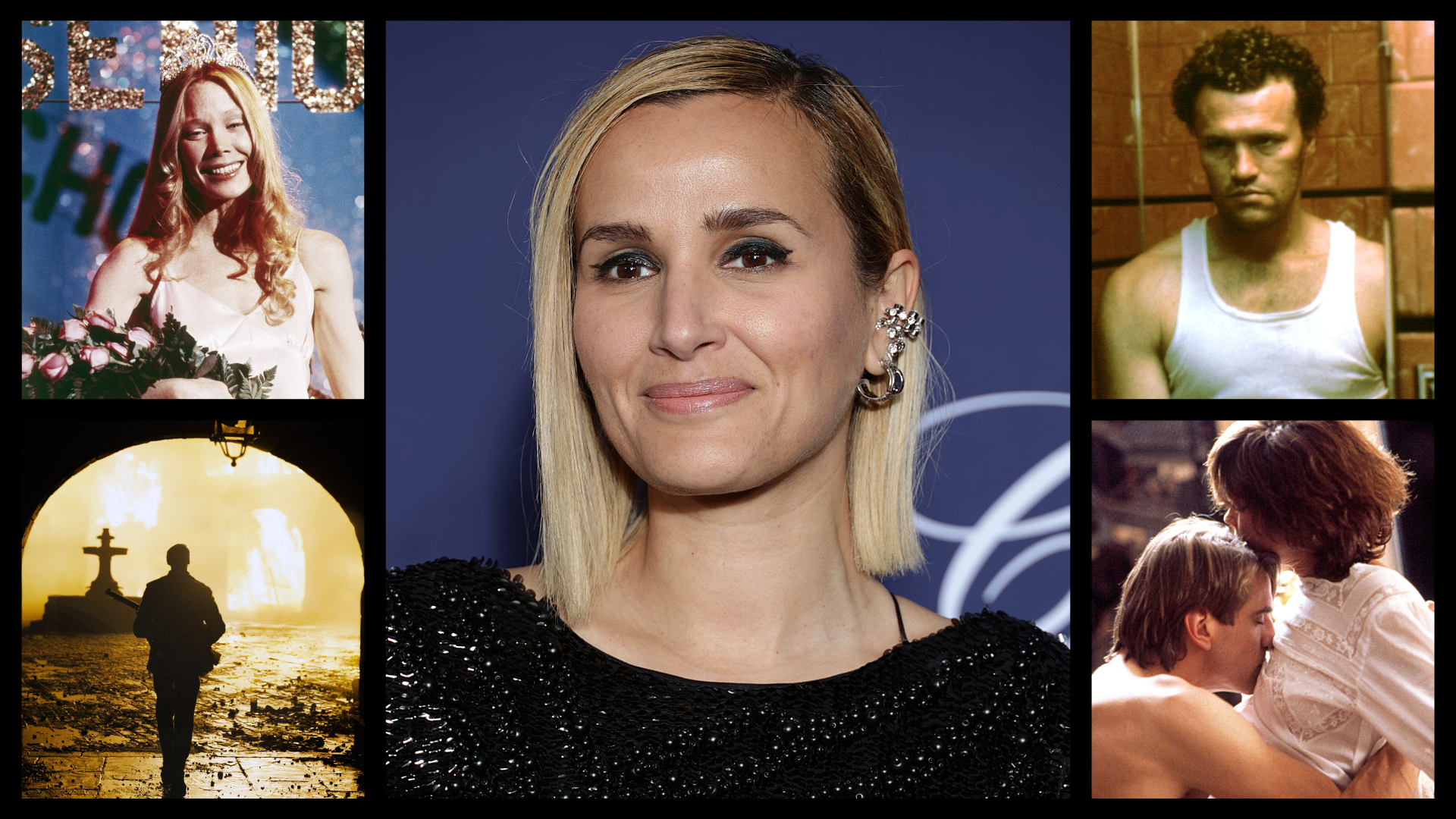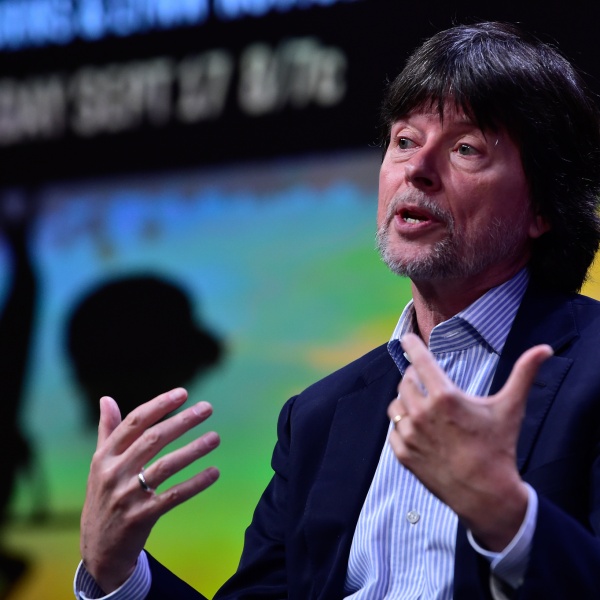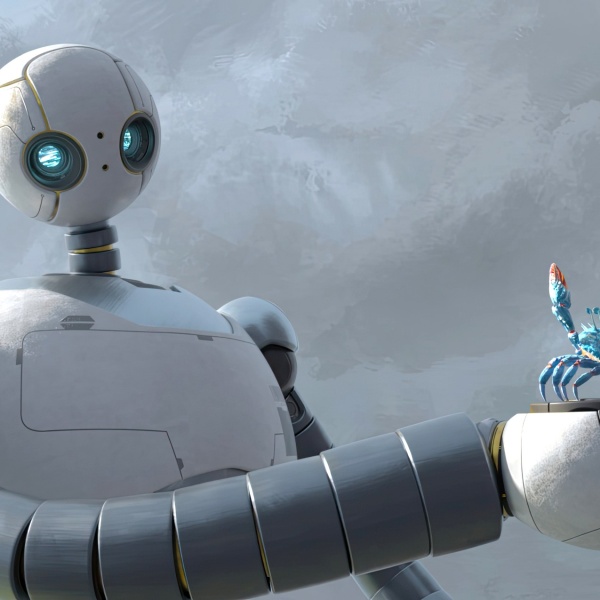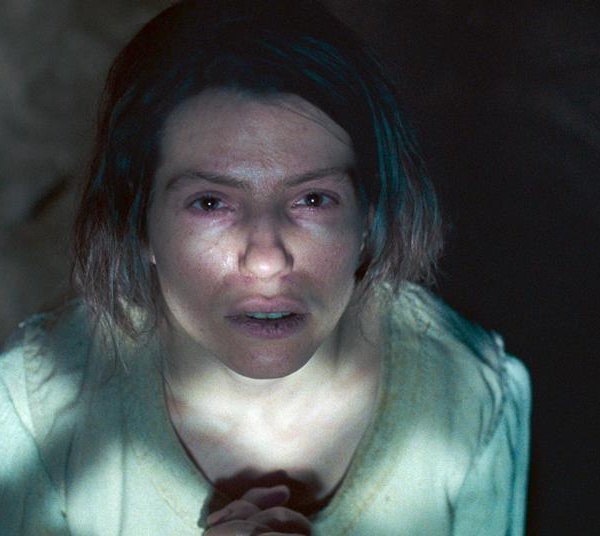These days, there are plenty of great modern filmmakers taking the horror genre to new heights: Jordan Peele, Robert Eggers, and Ari Aster, just to name a few. But there’s maybe nobody pushing the boundaries of terror more than the astonishing Julia Ducournau.
At 33, Ducournau was a young director who only had two short films to her name. Then, in 2016, her debut feature “Raw” was selected to compete in the Critics Week section of the Cannes Film Festival and ended up one of the most buzzed about films to come from the prestigious event. The feature — about a veterinarian in training who tastes meat for the first time and develops an appetite for human flesh — made headlines for its disturbing, intensely graphic content. During its premiere screening, audience members allegedly fainted from the film’s goriest scenes. But the transgressive movie still received plenty of acclaim, winning a prize out of the festival and making Ducournau one of the most fascinating new directors in the world.
Turns out, “Raw” was just her warm-up. Ducournau returned to Cannes in 2021 with her sophomore feature “Titane,” a less gory but nonetheless audacious film about a woman who turns to killing after an assault, has sex with a car, and ends up impersonating a missing teen boy in order to seek safety from the law in the home of a fire captain. The movie was just as weird as that description suggests, but “Titane” made it into the main competition of Cannes and won that year’s Palm D’Or — making history as the first solo female-directed movie to claim the prize. The film and its mix of pitch-black humor, shocking violence, and surprising sweetness resulted in one of the greatest works of art in recent cinematic memory. Now, body horror fans are eagerly anticipating whatever she does next.
Ducournau is an obvious student of David Cronenberg and David Lynch, with her propensity for body horror and her playful presentation of grotesque content serving as signatures in her work. But Ducournau’s style is also very much her own; both “Raw” and “Titane” are films that focus on young woman breaking from the constraints of polite society and finding themselves through unconventional and horrifying means. The movies are jaw-dropping in their audacity, but there’s a heart to both of them that grounds the violence and the bloodshed with real emotion.
In celebration of October, grab a fork and knife and dig into the films that inspired Ducournau’s twisted horror stories. Read on for a list of 12 films that Ducournau has named as some of her favorites, compiled from a variety of interviews discussing her influences and inspirations.
-
“Dead Ringers” (1988)

Image Credit: Courtesy Everett Collection It’s no surprise that the woman behind “Titane” is a huge David Croenberg fan. And one of her favorites from the body horror master is “Dead Ringers,” which stars Jeremy Irons as two twin gynecologists with a tense relationship who frequently impersonate each other.
“It’s like his opera. It is an opera in five acts. It’s a Greek tragedy,” Ducournau said in an interview with Fandom.
-
“The Fly” (1986)

Image Credit: Courtesy Everett Collection Another Cronenberg classic, “The Fly” stars Jeff Goldblum as a scientist that slowly gets transformed into a fly-like creature after a mishap with a teleportation device. “This movie makes me cry over and over and over again each time I watch it,” Ducournau told Fandom.
-
“Carrie” (1976)

Image Credit: ©United Artists/Courtesy Everett Collection Ducournau’s debut feature “Raw” recalls Brian De Palma’s iconic Stephen King adaptation “Carrie,” another story of a young woman awakening to her capacity for violence. Ducournau directly references the iconic red shower of blood scene from “Carrie” during one scene in “Raw.”
“I knew that in the audience most of the people would think about ‘Carrie’ on their own,” Ducournau told Fandom. “And so I said ‘OK, I’m going to do a wink to that famous blood-shower scene so that we know it’s here.’ I know I go on the same territory.”
-
“Henry: Portrait of a Serial Killer” (1986)

Image Credit: Courtesy Everett Collection During press for “Titane,” Ducournau cited “Henry: Portrait of a Serial Killer” as one of the influences for the film. From director John McNaughton, the cult film stars Michael Rooker as the titular drifting serial killer, whose murder spree is long, vicious, and indiscriminate. Ducournau said she was inspired by how McNaughton manages to make the audience, at least temporarily, root for an objectively horrible person and bend their morals.
“It is incredibly remarkable in the way it bends the audience’s morals, especially compared to this other fellow, Otis,” Ducournau told the Los Angeles Times. “Henry is a horrible character, a serial killer, and he doesn’t have any empathy whatsoever. But compared to Otis’ relationship with his own sister, you root for Henry when he says, ‘Don’t touch her.’ And all of a sudden, as an audience, your morals are completely twisted. You feel empathy for Henry at this moment when you actually were horrified by him from the start. I think that’s brilliant.”
-
“1917” (2019)

Image Credit: ©Universal/Courtesy Everett Collection “Titane” doesn’t have much in common with “1917,” Sam Mendes seeming one-shot World War II film about two soldiers on a dangerous reconnaissance mission. But Ducournau called the film “outstanding on a technical level,” and said she and DP Ruben Impens were inspired by the visuals of the film for a forest fire scene.
“It’s amazing, the lights and the camera movements in this. I love this film. And so we decided to go for something very artificial, like the city that is burning in ‘1917,’” Ducournau told the Los Angeles Times.
-
“The Texas Chainsaw Massacre” (1974)

Image Credit: Courtesy Everett Collection One of the most iconic horror films ever, “The Texas Chainsaw Massacre” from Tobe Hopper helped popularize slashers and its story of the cannibalistic Leatherface. The villain’s pursuit of teenagers in rural Texas remains influential to directors to this day, and Ducournau has referred to the movie as “a physical experience” and “a real work of art.”
“It is one of the deepest movies in the genre that has ever been made. This is incredibly smart, incredibly political, the cinematography is amazing,” Ducournau told Entertainment Weekly.
-
“Network” (1976)

Image Credit: Courtesy Everett Collection One of the most acclaimed movies of the ’70s, “Network” focuses on the cynical world of TV news, where executives use a former reporter’s breakdown for cheap ratings. In an interview with IndieWire, Ducournau revealed she had “Titane” actor Agathe Rousselle study the famous “I’m Mad as Hell” monologue from “Network” in order to get comfortable with working on camera.
-
“Killing Eve” (2018-2022)

Image Credit: ©BBC-America/Courtesy Everett Collection Controversial final season aside, “Killing Eve” was an intensely acclaimed series, starring Jodie Comer and Sandra Oh as an assassin and a spy in a cat-and-mouse relationship. Ducournau told IndieWire that she had Rouselle also study monologues from “Killing Eve” to prepare for “Titane.”
-
“Twin Peaks: Fire Walk With Me” (1992)

Image Credit: Courtesy Showtime The “Twin Peaks” prequel film “Fire Walk With Me,” about the final days of the doomed Laura Palmer, was poorly received upon release but today is widely considered one of director David Lynch’s greatest works. In an interview with Focus Features, Ducournau spoke about her love for Lynch and cited “Fire Walk With Me” as an example of how he mixed tragedy with humor.
“‘Twin Peaks: Fire Walk with Me’ is one of the best crossover films in the world. You really cry for these people who lose each other, who love each other. But at the same time, it’s so funny. I really love it,” Ducournau said.
-
“The Invitation” (2015)

Image Credit: Courtesy Everett Collection 2015 horror film “The Invitation” comes from director Karyn Kusama, focusing on a man and his new partner who attend a dinner party thrown by his ex-wife. They soon begin to suspect their host and her new husband have sinister intentions for their guests. In a 2017 Vulture interview, Ducournau referenced the film as a recent horror movie she admired.
-
“The Babadook” (2013)

Image Credit: ©IFC Films/Courtesy Everett Collection Jennifer Kent’s “The Babadook,” about a single mom who is tormented by the villain of a so-called “children’s” pop-up book, is one of the most influential horror movies of the 2010s — helping to kick off the “elevated horror” trend of the 21st century. Ducournau referred to the movie as a horror film she enjoys in her 2017 interview with Vulture.
-
“The Witch” (2015)

Image Credit: Courtesy A24 Robert Eggers’ career took off in 2015 with “The Witch,” a period piece about a Puritan family whose eldest daughter Thomasin (Anya Taylor-Joy) becomes tempted by witches that stalk her siblings. In her 2017 Vulture interview, Ducournau complimented the film.





